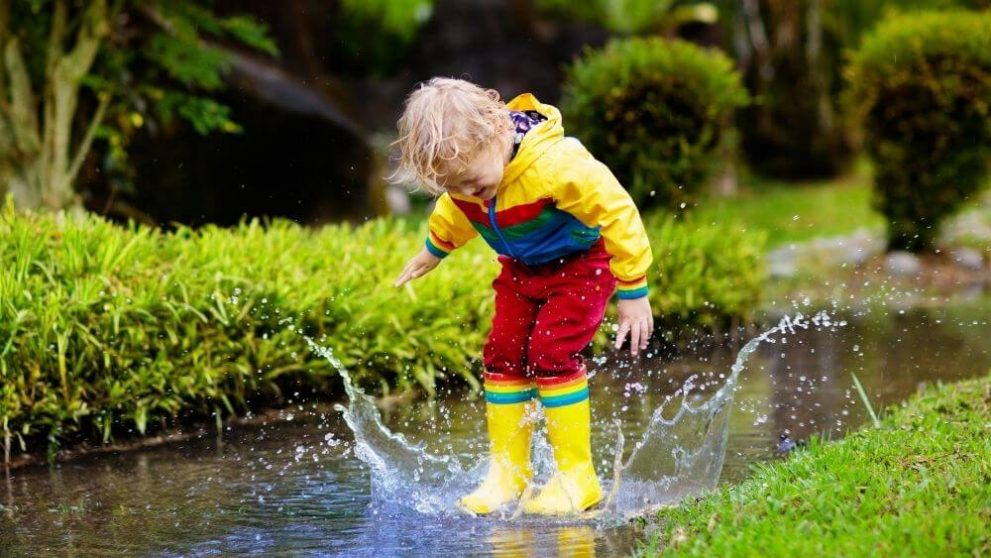Child Brain Development: Early Childhood
Feb 12, 2022 The human brain is responsible for thought processes, emotions, and body movements. A child’s brain reaches almost full development by the time they enter kindergarten.
Even though the brain develops until it’s 25-years-old, most of its development occurs before the age of six. But, what are the brain’s development stages, and what influences development?
In This Article
Baby Brain Development Stages
Up until Jean Piaget’s theory of the stages of development, experts thought that children had the same thought processes and cognitive functions as adults. That’s why they treated children as tiny adults. But through his observations and research Piaget theorized that children develop intelligence over time. He believed children were not less intelligent than adults, they just understand the world differently than adults.
From this theory, Jean Piaget created the four stages of cognitive development. The four stages include:
- Sensorimotor stage (birth to 2-years-old)
- Preoperational stage (2 to 7-years-old)
- Concrete operational stage (7 to 11-years-old)
- Formal operational stage (12 years old to adulthood)
The first two stages span from birth to 7-years-old, which experts consider to be the most critical stages of cognitive development. By the end of the preoperational stage, your child’s brain reaches 90% of his or her development. A person develops the rest of the brain’s development (10%) from 7-years-of-age to adulthood. Since these two stages are so critical to your child’s cognitive development, we will focus on how the brain develops through these two stages.
Sensorimotor Stage
This cognitive stage occurs from birth to two-years-old. During this stage, your child’s cognitive development is just beginning to form. In this stage, your baby learns through his or her senses. The more a child explores her/his environment, the more he/she will understand.

Some key cognitive development abilities in the sensorimotor stage include:
- A child learns through exploration and senses. They rely heavily on their five senses and trial-and-error learning;
- Children begin to understand that objects continue to exist even when they are out of sight (also known as ‘object permanence’);
- A child understands their direct actions cause a change in their environment (e.g., a child bangs his/her sippy cup on the floor causing the cup to leak milk on the floor. The action (banging a sippy cup) directly caused the milk to leak out on the floor (the effect));
- Children learn basic movements like sucking, listening, grasping, and more.
Preoperational Stage
This is the second of the baby brain development stages and occurs between the age of two to seven-years-old. The preoperational stage of cognitive development is a key stage for a child’s language development. Some more characteristics of this developmental stage include:
- Children start to use words and pictures to represent objects;
- Typically, children are “egocentric” and have trouble seeing things from another person’s perspective;
- Children begin to develop increased skills with pretend play;
- A child can think symbolically. During pretend play, a broom becomes a horse or a cardboard box becomes a car.
Boost Your Child’s Speech Development!
Improve language & communication skills with fun learning!

What Influences Healthy Brain Development Stages?
When we are born, the human brain is equipped with a certain number of brain cells, also known as neurons. However, the connections between the neurons called synapses develop rapidly. In fact, “one million new neural connections (synapses) are made every second” in early childhood, which is more than any other time in a child’s life. So, what influences and affects how neural connections are made through a child’s brain development stages?
Since we know early childhood brain development stages are based largely on learning through sensations and environment, relationships are essential for healthy brain development. Healthy and happy relationships between a child and his/her caregivers help the brain develop in the following ways:
- Early interactions between children and caregivers (smiling, cooing, crying) develop later into more direct communication like sign language and spoken words;
- When caregivers meet the essential needs of their child they protect the child’s brain from excess stress;
- Simple activities like reading, talking, and singing all help increase neural connections in a child’s brain to further a child’s desire for learning activities.

But just like positive interactions affect baby brain development stages, so do negative environmental factors like poverty, abuse, and neglect. These types of negative influences cause stress on a developing brain that hinders brain development.
Although each child develops at his or her own cognitive rate, the best way to ensure your child’s brainpower is off to a good start is by meeting your child’s needs and giving him or her endless amounts of love. Your love alone has the power to fuel your child’s early learning and brain development! Developmental milestones are something to be aware of, but not obsessed over. Every child learns at their own rate, don’t forget!
